Pavel Luksha on the Future of Skills
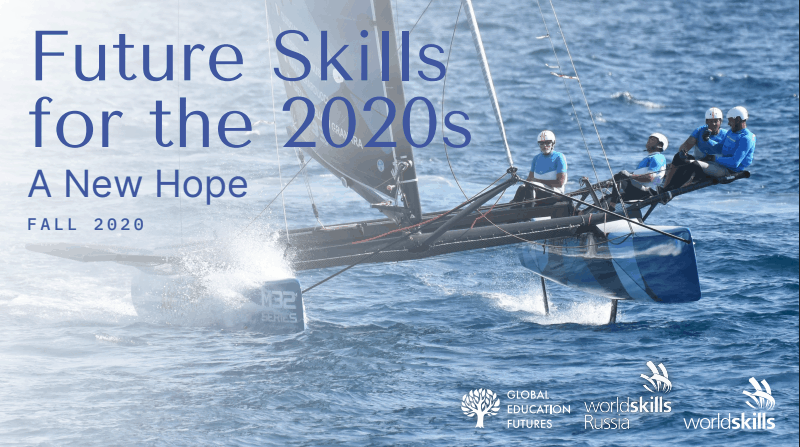
On this episode of the Getting Smart Podcast, Tom sits down again with Pavel Luksha, one of our favorite futurists, to discuss a recently published Future of Skills report.
Pavel Luksha is a leading education futurist. He is Professor of Practice at Moscow School of Management SKOLKOVO and director of Global Education Futures. What drives Pavel is creating a world that works for everyone. He recently contributed to a new Future of Skills report that is one of the best we’ve seen on the subject. The report was a collaboration between GEF, WorldSkills Russia and WS International.
Let’s listen in as Tom and Pavel discuss what learners need to know, why we live in a VUCA (Vooca) Place
In some ways, COVID-19 enabled a productive climate for report creation. Pavel said that the global shutdowns enabled the leading organizations to get in touch with experts from all over the world. In the end, the report was informed by nearly 800 contributors from 49 countries, all of which worked together to identify some of the key skills needed to build a thriving future for all. Three of these key skills are:
- the ability to collaborate, adapt and transform
- the ability to embrace future-orientations and technological tools
- the ability to embody well-being of people and planet as our primary purpose
“We need decision-makers. We need preparedness, anticipation + system thinking + collaboration. With dynamic changes comes an increased need for teamwork,” he said.
“We have to change the modality in which or economy operates. Cooperate with nature. Instead of taking from it, we learn how to restore it. This opens up tons of opportunities, but also new skills: green skills, well-being skills, etc. [This will lead to] life-centered, transformative, regenerative & circular economies coming to the fore this decade as we move away from ‘business as usual’ extractive capital-centered consumerism. We need to move our technologies from life-destroying to life-saving.”
The future of education and training will need to be future-focused and the biggest emphasis will be placed on adaptability and navigating change. The most critical areas of training will be AI and big data given their exponential growth rate and ability to reconstruct the entire economy. AI will also increasingly be used for assessment: “Google and Facebook know more than schools now due to their modeling […] Tech is not an enemy, but it’s also not a replacement for who we are. Just a tool.”
“The choices you are making are actually shaping the future … be bold, try and experiment. […] Put learners at the center — create processes with the idea that they are going to be around for life.”
Another report, the Learning Ecosystems report, a “practical guide for ‘ecosystem thrivalists’ contains a case study of 40+ learning ecosystems from all corners of the world. According to Pavel, ecosystems are the next stage of “system for education”. They require lifelong learning, being organization-based, online/offline modalities of learning and a network of learning providers and learners. The key principlesare personal, place-based, planetary, “Anyone who steps into an education ecosystem needs to recognize these levels.”
Pavel keeps learning by continuing to teach himself new skills, he recently took up the guitar, and also is a proponent for mentors as a primary method of growth.
Despite all of the emphasis on future advances and adaptability, Pavel reinforced that to make any transformation, “It starts with taking care of ourselves.”
Key Takeaways:
[:10] About today’s episode with Pavel Luksha.
[:45] Tom welcomes Pavel back to the Getting Smart Podcast!
[1:42] As a world traveler, how has the last year been for Pavel without any international travel?
[2:52] How were GEF, WorldSkills, and Pavel able to conduct this study during a global pandemic?
[4:05] Pavel talks about the volatile, uncertain, complex, and ambiguous (VUCA) world and how 2020 gave people the experience of a pandemic, one of the aspects of the VUCA world.
[4:47] Tom outlines the three overarching skills that the report covers and Pavel speaks about the first of the three, “Collaborate, adapt, and transform,” and why it is so critical.
[8:25] Pavel speaks about the increasing mutuality towards embracing well-being, as well as some of the counter-trends that they are seeing during the pandemic.
[10:52] Pavel shares about the megatrends in the report that are transforming the nature of the global economy: Digitalization, Globalization, and Environmentalization.
[15:03] Pavel elaborates on this idea of life-centered, transformative, regenerative, and circular economies — and why experts see this as a likely scenario.
[17:00] Pavel gives advice to education leaders and highlights the factors that they should be thinking about in the 2020s.
[20:05] Pavel elaborates on how education leaders should lean into artificial intelligence, big data, and exponential technologies.
[22:12] Why Tom loves “Future Skills for the 2020s” report.
[23:12] Pavel shares why they went sector-by-sector in the report.
[24:12] Pavel has also released an in-depth report on learning ecosystems titled, “Learning Ecosystems: An Emerging Praxis for the Future of Education.” Pavel elaborates on what a learning ecosystem is and why they are worth studying.
[30:38] Pavel provides some examples of what a healthy learning ecosystem looks like.
[34:30] How does Pavel keep productive and stay focused on his learning even in the midst of a global pandemic?
[36:46] Tom thanks Pavel for joining the podcast once again!
Mentioned in This Episode:
- Pavel Luksha (LinkedIn)
- Getting Smart Podcast Ep. 223: “Pavel Luksha on Educating for Purpose, Potential, and the Planet”
- Moscow School of Management SKOLKOVO
- “Future Skills for the 2020s,” Report by GEF, WorldSkills Russia, and WorldSkills International
- Global Education Futures
- WorldSkills Russia
- WorldSkills International
- “Learning Ecosystems: An Emerging Praxis for the Future of Education,” Report by GEF and Moscow School of Management SKOLKOVO
- Dream a Dream
Stay in-the-know with innovations in learning by signing up for the weekly Smart Update.


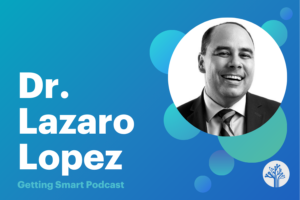

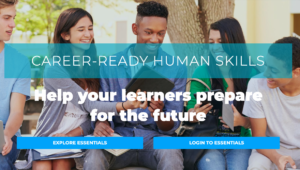
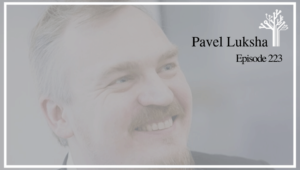
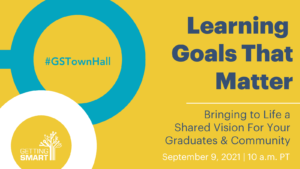
0 Comments
Leave a Comment
Your email address will not be published. All fields are required.